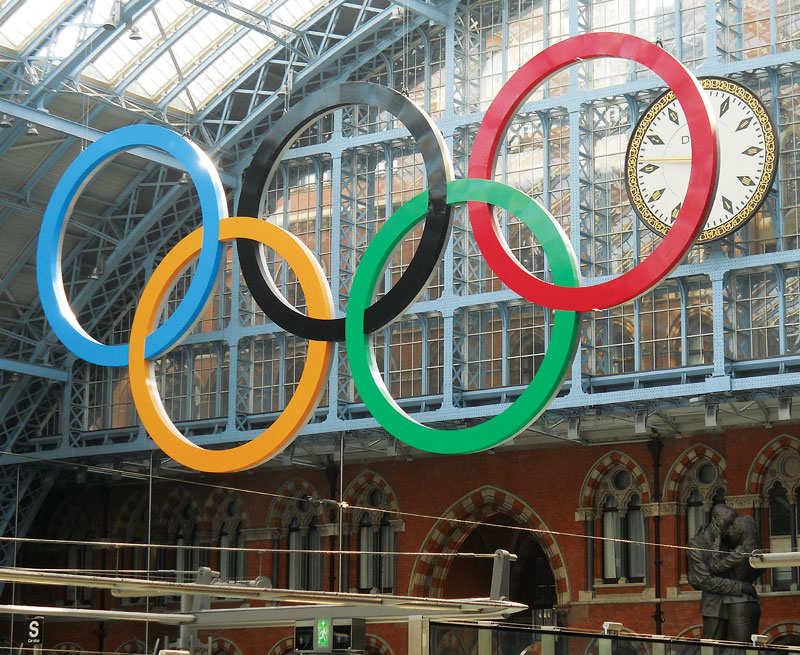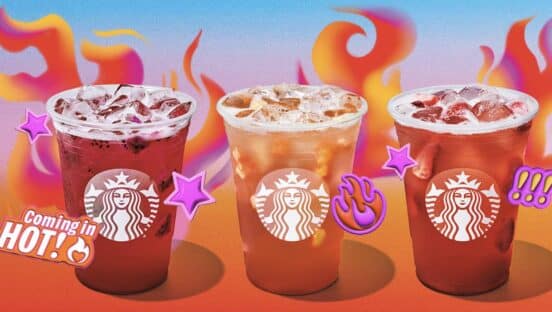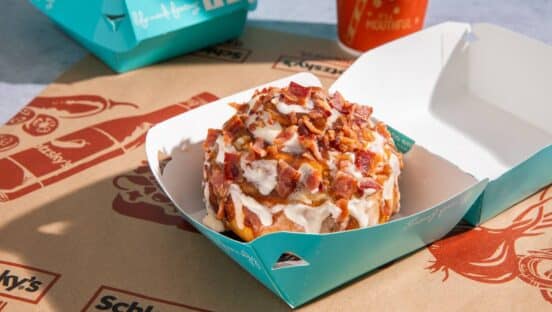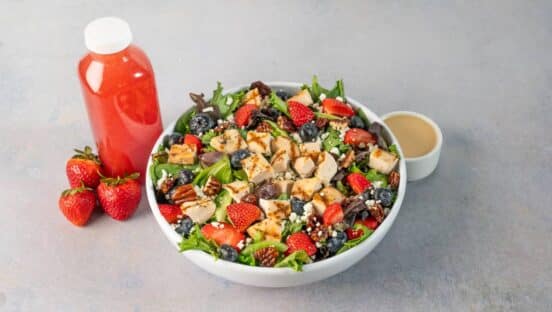Visually, the five interlocking rings that have become synonymous with the Olympic Games are fairly simple, but they deliver an iconic message. They speak to thrilling competition, achievement at the highest level, and the pride and patriotism of nations. The rings have come to be one of the world’s most recognizable symbols—fitting given that the Olympics are one of the world’s strongest brands.
While athletes have prepped for years for their shot at a medal in the 2012 Olympics in London, marketing executives at companies big and small have spent months strategizing how they can snag some
Olympic gold of their own.
Unlike professional or intercollegiate athletics, the Olympics offer a powerful international platform. Television alone brings in billions of viewers from more than 200 countries across the globe, and, because the Olympics span two weeks, the opportunities to be seen and heard are more prevalent than at one-off sporting events, which don’t provide the magnitude or diversity of viewers.
The Games can propel athletes and nations alike from obscurity to stardom. And the opportunity to associate oneself or one’s company with the Olympics draws millions in annual sponsorships to the Games. But even those who don’t have an official relationship with the International Olympic Committee can try to get in on the action, as unaffiliated companies launch marketing and advertising campaigns seeking an indirect tie to the Games.
Between 2005 and 2008, Olympic partners invested nearly $900 million to secure official sponsorships of the Games in Torino, Italy, and Beijing. Such corporate sponsorships account for about 40 percent of all Olympic revenue. This summer’s London Olympics will include 11 companies in The Olympic Partnership, the Games’ official sponsorship program. For that money, companies get prime-time exposure and are able to leverage their brand identities with the Olympics and all that the Games represent.
McDonald’s, a marquee sponsor of the Olympics, will again host a cadre of events and programs at the Olympics. Its two Olympic Park restaurants will feed thousands of spectators, while other specially built McDonald’s restaurants will feed athletes and journalists in London.
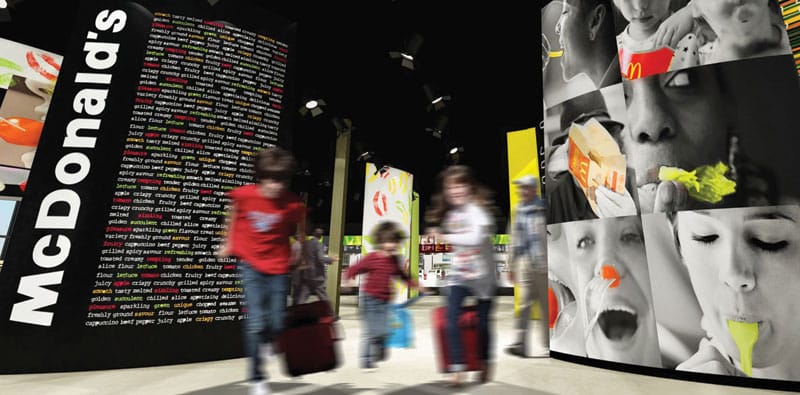
The Central McDonals’s in olympic Village will seat about 1,500 hungry fans.
McDonald’s has had its hands in the Games since 1968, when the company airlifted hamburgers to competitors in Grenoble, France. London’s Games are the ninth consecutive in which McDonald’s will feed athletes as the Official Restaurant of the Olympic Games. Company officials say Olympic athletes want to eat McDonald’s at the Games. A survey at the 2010 Vancouver games found that 92 percent of athletes had a positive reaction to having McDonald’s food on-site.
“We know that the athletes love and want McDonald’s to be there,” says Dean Barrett, global marketing officer and senior vice president for McDonald’s Corporation.
The central McDonald’s in Olympic Village will seat about 1,500 hungry fans, and the company expects to feed about 1.75 million meals across its four Olympic locations. To do that, 2,000 of the company’s top workers will be brought in from the United Kingdom and from around the world to form the largest McDonald’s crew ever.
The company has offered that once-in-a-lifetime reward to the highest-performing employees since 2000. And executives see the program as a way to tie the idea of being your best between the company and the Games.
“It’s a great example of a great fit between McDonald’s and the Olympics. We have some of the best employees in the world,” Barrett says. “It’s the heart and soul of what we stand for.”
This year, the world’s largest burger chain will roll out its “Champions of Play” campaign, which seeks to promote healthy and active lifestyles for kids. The company will recruit up to 200 children from across the globe to attend the London Games, learn about healthy eating, and spend time with Olympic athletes.
Barrett says the move is in line with the company’s goal of involving children in the Games and promoting healthy lifestyles. The program will emphasize eating smart and playing hard with the use of chef demonstrations and healthy eating tips in Happy Meals, which will include fruit and vegetable options. The program’s reach will be expanded beyond London with special materials and resources placed in restaurants and online that encourage balanced eating and fun play.
“I think what we’re doing is taking it a step further in terms of really creating a program to get kids involved in the Olympics and to get them involved in the spirit of fun play,” Barrett says. “The best way to play and get active is to eat smart.”
Of course, some might raise their eyebrows at the thought of a quick-service burger chain leading the way on health issues, especially on a stage as bright as the Olympics.
“It sort of promotes this idea you could have a healthy physique, participate in sports, and look like these [Olympic athletes], while at the same time eating fast food. While it’s possible, most would argue that’s not really the case,” says T. Bettina Cornwell, the Edwin E. and June Woldt Cone professor of marketing and director of research for the Warsaw Sports Marketing Center at the University of Oregon’s Lundquist College of Business.
But if McDonald’s is serious about promoting healthy living and committed to providing more healthful foods, Cornwell says, the campaign could be successful. “It has to be something that looks genuine,” she says. “I believe it’s a misrepresentation to the public unless they’re really serious about it.”
[pagebreak]
Cornwell, whose research specializes in sponsorships, says corporate sponsors of the Olympic Games and other sporting events are able to reach captive audiences that traditional advertising may not be able to match. Unlike television commercials, which can be edited or skipped through, sponsorship messages are unavoidable to viewers because they’re etched into screens or venues.
“Sponsorship is embedded in the conversation and can’t be edited out,” Cornwell says.
Aside from just eyeballs, sponsorships send a strong message. They connect companies to the ideals of a particular team or event.
“[Sponsors are] attempting to identify and associate with images surrounding the Olympics—positive, supportive, and healthy,” Cornwell says. “They want these brand associations to move over to their brand.”
And there’s no better global association than one with the Olympic rings.
“The affiliation with the Olympic rings, that’s the magic driver of all Olympic sponsorships,” says William Chipps, senior editor of the IEG Sponsorship Report. “When one looks at these rings, it ties back to what these rings represent. That’s what companies want to tap into.”
Chipps says being able to associate with ideals like performance, excellence, and being the best you can be is what drives company executives to sign multimillion-dollar contracts. That kind of messaging can be much more powerful than a straight media buy, especially given the fragmented media landscape.
“It brings a lot to the marketing table,” Chipps says.
But even companies without contractual ties to the Olympics will work to get in on the gold through what experts call “ambush marketing.” While official sponsors like McDonald’s may not approve, Chipps says, there are many other ways to affiliate with the Games without ever signing any papers.
Subway’s Famous Fans campaign includes Olympic standouts like Apolo Ohno and Michael Phelps alongside well-known professional athletes. The company doesn’t claim to have an official sponsorship, yet the consumer could still perceive an association between the company and the Games. In 2010, McDonald’s leaders took issue with a Subway commercial featuring Phelps because it gave the appearance of a Subway sponsorship.
On a smaller scale, the 52-unit Erbert & Gerbert’s Sandwich Shop offered until June its Apollo sandwich in homage to the original Greek games. All sandwiches at the Wisconsin-based Erbert & Gerbert’s are based on stories, many originating from founder Kevin Schipper’s childhood. The limited-time Apollo was no different, with a complex tale of how Erbert and Gerbert met Apollo, one of 12 Greek gods and goddesses said to live atop Mount Olympus.
While the timing of Apollo’s launch tied in well to Olympic build-up, the sandwich was originally conceived by focus-group results and the company’s desire to target flavor profiles. The Olympics, and the Greek story, were simply a means of marketing the sandwich.
“The conscious effort here was to come up with something that would be of Olympic proportion that would have a heroic background and capture a unique story,” says Chuck Schwalbe, Erbert & Gerbert’s director of marketing.
Though it’s indirect, Schwalbe says the company’s Olympic tie-in delivers a positive association. Further, the Olympic message is one that resonates with many companies.
“It’s an opportunity maybe not so much to tie yourself to it from a commercial standpoint, but to tie yourself to the elements within it that spur on the human condition,” Schwalbe says. “We are, as a company, not struggling, but striving to do our very best and, for lack of a better word, bring the gold in what we do. That is what captures the emotion of people: It’s time to be the best. It’s time to work hard and compete to be the best.”
There are, no doubt, many benefits for unofficial marketing efforts surrounding the Olympics. But these types of efforts can blur the lines for consumers, who may not always be able to tell the difference between official sponsors and those just along for the ride.
In their 2007 book, consultants Kevin Clancy and Peter Krieg cited a study of Olympic sponsorships that showed just how blurry those lines can get. Study participants were as likely to identify brands that advertised heavily during the Games as sponsors as those brands who weren’t official sponsors.
“If all you do is advertise, there’s a good chance you’ll be associated as a sponsor,” Krieg says.
For any sponsorship to be successful, Krieg says, companies must invest as much money and energy into activating the sponsorship—through special offerings, local advertising, sweepstakes, or special events—as they do on the original contract.
The Olympics deliver a diverse and wide audience, which can be key for those companies that compete in an ever-globalizing marketplace.
“It’s a small world,” Krieg says. “I think that’s where a lot of brands probably need to be going now, given globalization and our position in the world.”
Like any other sporting event, sponsors have to know whom they’re targeting and determine whether people who watch the sport are interested in their product. Krieg says the NFL fan base is widespread, while the typical fan of NCAA athletics is an upscale, college-educated male. Different companies will find these different cross sections of consumers desirable, depending on what they’re selling.
The Olympics are much more popular with women than other sporting events, making the Games an even bigger prize for advertisers and sponsors. That market share could be huge for McDonald’s given this year’s push to promote healthy lifestyles.
“That could help them get business with people like moms, who could be drifting away from McDonald’s given health concerns and childhood obesity problems,” Krieg says.
Big-name Olympic sponsors like McDonald’s, Visa, and Coca-Cola probably don’t expect to see immediate growth in sales sprouting from their work with the Games. Krieg sees the goal of such sponsorships as more nuanced. “It’s more about branding and brand building,” he says. “It’s very unlikely to move sales year-over-year. You have to look at it as investing in a brand.”
For McDonald’s, that’s what the sponsorship is all about. The immediate goal isn’t to increase sales or profitability; it’s to be seen as part of the Olympics and borrow from the identities and values the Games represent.
“I don’t know that it’s about the day-to-day business to us. It’s about our association. I think McDonald’s is one of the most recognized brands in the world and the Olympics are probably one of the most recognized cultural events in the world,” Barrett says. “From our perspective, it’s much more than a sponsorship. It’s about association. We believe those values and ideals are very close with ours as a company.”

